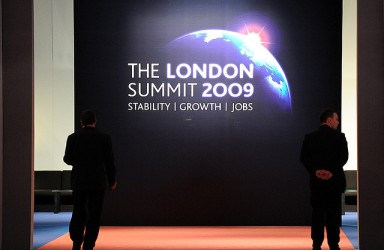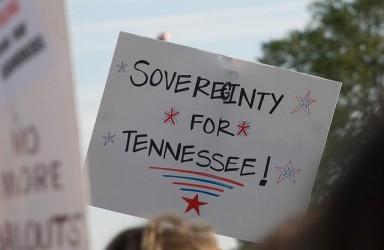Are nationalism and cosmopolitanism compatible?
Uniting cosmopolitanism and nationalism helps to move beyond the otherwise Eurocentric and elitist nature of the cosmopolitan perspective. In addition, it might contribute to addressing one of the major challenges facing modern societies – the accommodation of ethnic and cultural diversity. Cosmopolitanism, both as a political and cultural principle, and an emerging reality, certainly deserves to be accepted and taken into account in the creation of new avenues of political action.
The Challenges to State Sovereignty from the Promotion of Human Rights
Traditionally, the promotion of Human Rights and the concept of state sovereignty have been fundamentally opposed. The institutionalisation of Human Rights in the international system is a relatively new concept. It wasn’t until after the Second World War that the challenge of Human Rights upon state sovereignty emerged.
Experimental Insights on Corruption in International Political Economy
The conventional understanding of corruption in International Political Economy is limited. Our understanding of corruption can improve through the insights of economic experiments. These offer explanations on the psychological, cultural and moral aspects of corruption, which have important policy implications
USA: Status Quo or Revisionist Power?
Although the United States’ irrational, and at times, imperialistic actions are seen to be out of the desire to spread American ideals, the superpower in reality is more concerned about the preservation of the global order. The fact that the United States is concerned over not only the security and peace of the world but the betterment of mankind is precisely the reason why the United States is allowed to call itself a status quo power.
Fool’s Gold or Credible Defense?
The creation of nuclear weapons at the end of World War II has created a conundrum for military planners and policy makers around the globe. How do you construct a model for defense against nuclear weapons? Beginning in the early 1960’s until the present day, policy makers around the globe have crafted a number of missile defense systems to attempt to counter nuclear weapons deployments. The results have been mixed.
Thomas Hobbes and Niccolo Machiavelli: A Comparison
Hobbes’ work was designed to make the analysis of politics more scientific. Machiavelli was a man of action; he worked, primarily, as a civil servant of the Florentine Republic. It is this difference in methodology, which ultimately underlies the differences in political beliefs of these two people.
Geopolitics and Historical Materialism in International Relations
Marxism has not, since its original formulation, considered IR and its concepts worthy as an object of study in its own right. Therefore, over 150 years after the publication of his major treatises, there is a sense that Marx’s project needs to be revised to account for this world of states.
Contending Dialectics: Revisiting Material and Ideational Dimensions of Sovereignty
The state is understood to constitute the primary institutions holding sovereign authority. States, however, are no longer standing alone on the hill of sovereignty, which other actors have come to the climb, claiming their own sovereignty vis-à-vis the state.
Are Large Companies at the Heart of a New Form of Transnational Hegemonic Order?
The propagation of liberal economic policies by states, particularly the US, paved the way for the globalisation of finance and production which enabled Transnational Corporations (TNCs) to share power with states and other actors. States are no longer the only important actors domestically or internationally.
The uses and misuses of psychological practices in order to achieve national security objectives
In recent years, there has been an increase in interest in how Security Services around the world operate. The interrogation of prisoners and claims of torture by certain agencies have been widely condemned. Being able to demand Fairtrade chocolate has led many to believe that there is a possibility of Fairtrade intelligence and national security










